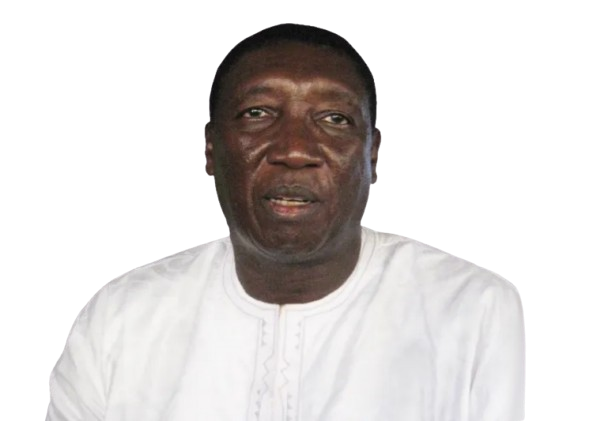Gambiaj.com – (BANJUL, The Gambia) – The Chairman of the Gambia Trade Union Bureau, Kebba Masanneh Ceesay, has issued a powerful call for workers to rise, organize, unite, and fight for dignity and social justice amid what he described as persistent government neglect of workers’ interests.
Speaking on the occasion of International Workers’ Day, Ceesay criticized the Gambian government for making unilateral decisions on matters that directly affect workers—most notably, salary adjustments for civil servants—without proper consultation with trade unions or due consideration of the country’s economic realities.
“It is interesting that it’s the government that decides to increase salaries without asking what the workers need,” Ceesay said. “The real cost of living is beyond the increment of 30 percent. What does that mean? It does not commensurate. A fair wage rise should align with the cost of living.”
Ceesay lamented what he called a “token consultation culture,” where trade unions are selectively included in discussions while being sidelined on weightier issues like asset recycling, major privatization decisions, and national infrastructure projects such as the Senegambia Bridge and the Gambia Ports Authority.
“We are consulted on issues that they want to consult us on, but when it comes to the privatization of key assets like civil aviation, the bridge, or ports, we are left out. These are matters of direct concern to workers and should not be decided behind closed doors,” he asserted.
A Weak Labor Administration Effectively Undermining Workers Rights
The union leader also underscored the urgent need for a stronger and more transparent labor administration in The Gambia. He said the weakness of the labor administration undermines effective industrial relations and hinders the enforcement of workers’ rights.
“There is a general lack of adequate transparency in most of what the government does concerning workers. Many of the International Labour Organization (ILO) conventions that safeguard workers’ rights remain unratified,” Ceesay noted. “The government must ratify these conventions and protect workers at all times. It is their obligation.”
He emphasized that the failure to involve labor representatives in crucial decision-making processes weakens both governance and the labor movement. “We are partners. But we are not being treated as such. We need support—logistics, infrastructure, and finance—so that workers can stand strong and proud.”
Calling for long-term structural change, Ceesay advocated for the inclusion of workers’ voices at the highest levels, including in parliamentary processes. “Workers have the right to be represented. The government must hear us. This is our day to make demands. And too often, those demands are ignored or action is slow.”
He noted that the union is now focusing on building a new generation of labor leaders by engaging youth and women, organizing workshops in partnership with the ILO, and educating workers on their rights, including protection from harassment and unfair treatment. “It is only when we are organized that we can ensure safe workplaces, protect lives, and defend our freedom to organize.”
Ceesay also raised concerns about the government’s control over International Workers’ Day events, especially the mass sports celebrations. “The workers are not fully in control of the event. International Workers’ Day should be fully owned and organized by organized labor. It’s unacceptable that this day has been hijacked,” he said.
He called on the Ministry of Trade, the government’s line ministry on labor matters, to rectify what he described as an “abnormality” by restoring control of Workers’ Day celebrations to the unions.
In conclusion, Ceesay warned that the disempowerment of workers, lack of dialogue, and failure to prioritize labor issues would continue to undermine social justice in the country. “If workers unite, we can make proposals based on real data and needs. But we need space, recognition, and permanent mechanisms for high-level dialogue.”










